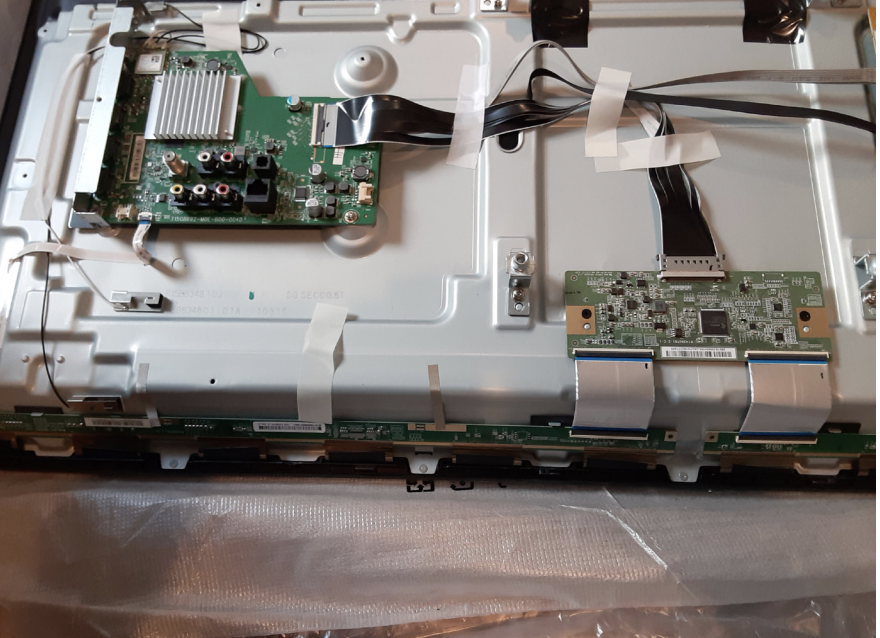
The Software Freedom Conservancy announced that it is suing Vizio, an American TV manufacturer, for what it alleges are “repeated failures to fulfill even the basic requirements of the General Public License (GPL).”
The 501(c)(3) charity organization is a non-profit that provides infrastructure support for free and open source software projects, defending users’ rights under copyleft licenses and the GPL. A few of its member projects include BusyBox, Git, Homebrew, OpenWrt, and phpMyAdmin. As part of its mission, the Conservancy assists member projects in enforcing the terms of FLOSS licenses, including through litigation.
The Software Freedom Conservancy contends that Vizio’s TV products contain software with copyleft licenses but the company refused to provide the source code after multiple attempts at contact since 2018. Vizio also did not inform its customers about the rights included with the software it was bundling.
“We filed suit as a purchaser of TVs to stand up for copyleft,” Software Freedom Conservancy Executive Director Karen Sandler said. “There was no source or offer for source even after we’d been working with them for a long time on older products. Copyleft can help us take control of our tech in a meaningful way, it’s a huge benefit to consumers.”
In a new twist on GPL enforcement, the organization is presenting this lawsuit on behalf of individual consumers, as opposed to the traditional path of defending copyright holders of the GPL code in question.
The Software Freedom Conservancy contends that Vizio’s alleged noncompliance prevents consumers from being able to repair their devices, improve and control them, as well as curtail surveillance and ads through modifications. The full text of the complaint includes examples of how consumers might benefit from having access to the source code:
Vizio is unlikely to unilaterally implement features that prevent the collection of such user data, as such user data is valuable to Vizio. Access to the Source Code of the Linux kernel, the other SmartCast Programs at Issue, and for the Library Linking Programs, as used on Vizio smart TVs, would enable software developers to preserve useful but obsolete features. It would also allow software developers to maintain and update the operating system should Vizio or its successor ever decide to abandon it or go out of business. In these ways, purchasers of Vizio smart TVs can be confident that their devices would not suffer from software-induced obsolescence, planned or otherwise.
In the organization’s announcement of the lawsuit, Sandler highlighted the environmental impact of denying consumers access to the code.
“The global supply chain shortages that have affected everything from cars to consumer electronics underscore one of the reasons why it is important to be able to repair products we already own,” says Sandler. “Even without supply chain challenges, the forced obsolescence of devices like TVs isn’t in the best interest of the consumer or even the planet. This is another aspect of what we mean by ‘ethical technology.’ Throwing away a TV because its software is no longer supported by its manufacturer is not only wasteful, it has dire environmental consequences. Consumers should have more control over this, and they would if companies like Vizio played by the rules.”
The complaint alleges that Vizio is in breach of the GPLv2 and the LGPLv2.1 every time they distribute a smart TV without the source code or a written offer to provide it. It claims that none of the smart TVs Vizio has introduced in the US market in the past four years have been accompanied by the source code.
Open source leaders from affiliate organizations commented on the unique approach of this lawsuit, where the Conservancy is acting on behalf of consumers as the plaintiff, as opposed to prevailing upon the copyright holder to defend its users. The complaint states:
No one other than the purchaser has both the information and motive to enforce the Source Code Provision. Purchasers will both know whether the Source Code Provision has been honored and have a desire to examine and further develop the corresponding source code.
“If this consumer-rights-based approach succeeds, the main excuse for copyright assignments to organizations like the FSF will be gone and we can unambiguously treat a CLA as a red flag,” Open Source Initiative Director of Standards/Policy Simon Phipps said.
The complaint states that the “Plaintiff and other members of the class of persons intended to benefit from the GPLv2 and LGPLv2.1 have been damaged in an amount that cannot be readily determined.” Vizio’s alleged noncompliance has effectively stunted the source code’s potential for improvements from consumers for years. It has also robbed consumers of the control of their electronics and given Vizio an unfair advantage that protects their corporate interests at the expense of users’ freedoms. The Conservancy is not seeking an exact amount for damages but rather leaving it to the judgment of the court.
“This lawsuit has the potential to empower many consumers, radically changing the landscape of consumer technology,” Open Source Initiative Executive Director Stefano Maffulli said.
The Conservancy’s case will be an important one to watch, as its decision could set a precedent for GPL enforcement in the future. If nothing else, it should signal to companies benefiting from GPL-licensed code that they must also respect consumers’ rights. If consumers are the intended third-party beneficiaries of the license agreement, then they have a right to the source code.